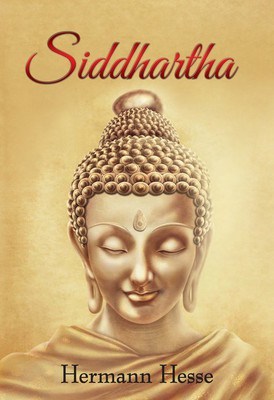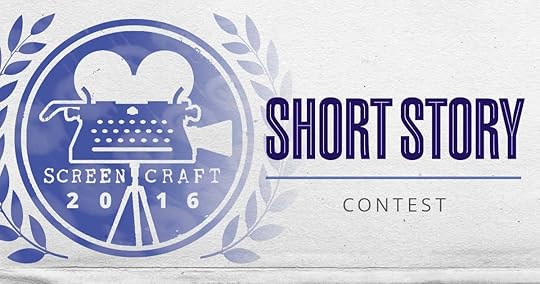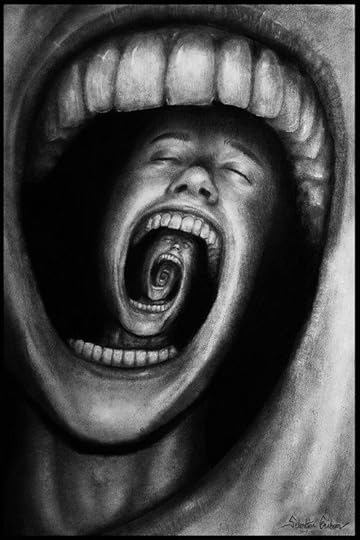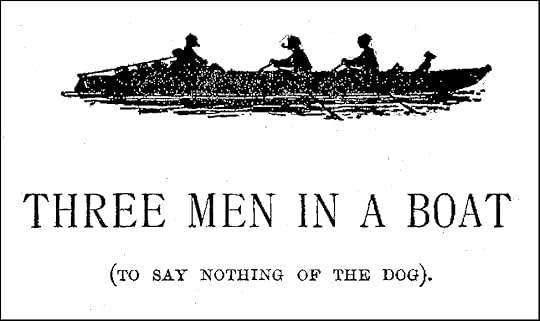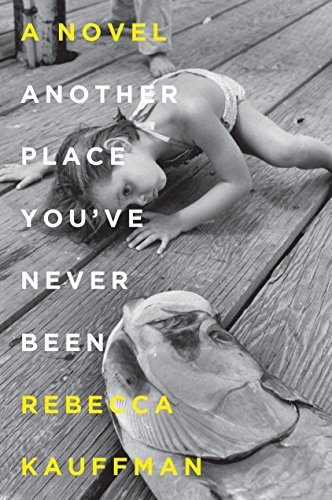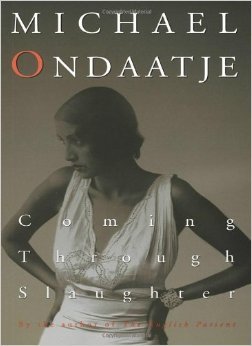Richard Harris's Blog, page 43
October 20, 2016
Quote of the Day
I’ve read Hermann Hesse’s Siddhartha (1922) three times, and each time I do – or even come across one of its golden nuggets of wisdom as seen below – I sit back and smile.
According to my two good friends, Mr. Wiki and Ms. Pedia, “The word Siddhartha is made up of two words in the Sanskrit language, siddha (achieved) + artha (what was searched for), which together means ‘he who has found meaning (of existence), or he [or she] who has attained his goals’.”
Here’s today’s morsel of wisdom:
“Once he said to her: ‘You are like me; you are different from other people. You are Kamala and no one else, and within you there is a stillness and sanctuary to which you can retreat any time and be yourself, just as I can. Few people have that capacity and yet everyone could have it.”


October 19, 2016
Quote of the Day
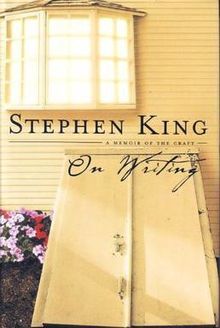
Today’s sage words come from what may very well be the most prolific fiction writer in the English language, His Majesty Stephen King. From his treatise on the craft that launched him to stratospheric heights, On Writing, ironically enough this quote comes from page 101.
“Life isn’t a support-system for art. It’s the other way around.”


October 18, 2016
Short Story Contest
The good folks over at ScreenCraft are having a short story/flash fiction/novella contest for stories that demonstrate “special cinematic potential.” The contest is open to people of any nationality, and there’s no limit to how many stories you can submit. It’s $29 per entry, with a word count limit of 20,000 words. Winner takes home $1,000 plus a few other goodies. Deadline is December 19, 2016.
For more information and details about rules and eligibility, click here.


2017 Toronto Fringe Festival
Attention all fringe artists. The Toronto Fringe Festival, otherwise known as the @Toronto_Fringe TD Culturally Diverse Artist Project (CDAP), is taking place from July 5-16, 2017. Click on the previous link and learn more about how to apply and if you qualify for a bursary.


Quote of the Day
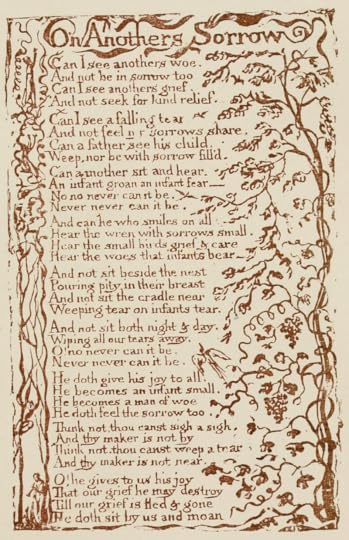
In the wake of all the new rules breaking down art into different categories, I’m stretching the limits a la Swedish, too. That’s why today’s Quote of the Day is a poem, William Blake’s “On Another’s Sorrow.” If you don’t think an 18-stanza poem is a quote, take it up with the Swedish Academy.
Said beautiful work of poetry was published in 1789 by Blake in his Songs of Innocence and Experience. Per the mighty Wiki, “The poem discusses human and divine empathy and compassion. It was published…as the last song in the Songs of Innocence section. Blake argues that human sympathy is a valuable trait. After making this observation about man he then speaks of the sympathy of God, as well.”
Can I see another’s woe,
And not be in sorrow too?
Can I see another’s grief,
And not seek for kind relief?
Can I see a falling tear,
And not feel my sorrow’s share?
Can a father see his child
Weep, nor be with sorrow filled?
Can a mother sit and hear
An infant groan, an infant fear?
No, no! never can it be!
Never, never can it be!
And can He who smiles on all
Hear the wren with sorrows small,
Hear the small bird’s grief and care,
Hear the woes that infants bear –
And not sit beside the nest,
Pouring pity in their breast,
And not sit the cradle near,
Weeping tear on infant’s tear?
And not sit both night and day,
Wiping all our tears away?
O no! never can it be!
Never, never can it be!
He doth give His joy to all:
He becomes an infant small,
He becomes a man of woe,
He doth feel the sorrow too.
Think not thou canst sigh a sigh,
And thy Maker is not by:
Think not thou canst weep a tear,
And thy Maker is not near.
O He gives to us His joy,
That our grief He may destroy:
Till our grief is fled and gone
He doth sit by us and moan.
Can I see another’s woe,
And not be in sorrow too?
Can I see another’s grief,
And not seek for kind relief?
Can I see a falling tear,
And not feel my sorrow’s share?
Can a father see his child
Weep, nor be with sorrow filled?
Can a mother sit and hear
An infant groan, an infant fear?
No, no! never can it be!
Never, never can it be!
And can He who smiles on all
Hear the wren with sorrows small,
Hear the small bird’s grief and care,
Hear the woes that infants bear –
And not sit beside the nest,
Pouring pity in their breast,
And not sit the cradle near,
Weeping tear on infant’s tear?
And not sit both night and day,
Wiping all our tears away?
O no! never can it be!
Never, never can it be!
He doth give His joy to all:
He becomes an infant small,
He becomes a man of woe,
He doth feel the sorrow too.
Think not thou canst sigh a sigh,
And thy Maker is not by:
Think not thou canst weep a tear,
And thy Maker is not near.
O He gives to us His joy,
That our grief He may destroy:
Till our grief is fled and gone
He doth sit by us and moan.


October 17, 2016
OAC Premier’s Awards for Excellence in the Arts
If you know of an artist or arts organization that should be nominated for this highly prestigious (and financially lucrative) award, make sure you nominate them through the Ontario Arts Council by December 1, 2016.
More information available on the OAC’s website.


It’s All in Your Head
Talk about taking Edvard Munch’s The Scream to the next level!
Jowita Bydlowska, author of the controversial memoir Drunk Mom, posted a thought-provoking (if you’re not an artist) and thoroughly frightening (if you are an artist) piece on the correlation between mental health/addiction/suicide and the artistic process on alllitup.ca called “So you’re an artist? Help is on the way! ”
Congrats to Jowita for the buzz she’s created with the recent release of her first novel, Guy, which The Globe and Mail recently reviewed and said is not only “fascinating and disturbing,” but “a timely study into…[a] toxic and predatory masculinity.”


Quote of the Day
Oh, to have a first and last name that match! For Jerome K. Jerome, he was one of the lucky blokes. Perhaps that’s what gave him his first insight into humourous writing. Just look at this humdinger from his 1899 travel guide turned comedic account, Three Men in a Boat, which chronicles a two-week jaunt along the River Thames. Jerome and two of his chaps, “martyrs to hypochondria and general seediness,” are sure to have you Rolling On The River Thames Laughing with zingers like this one:
“It is not that I object to the work, mind you; I like work: it fascinates me. I can sit and look at it for hours.”


October 16, 2016
The Good Ol’ Social Media/Toxicity Conundrum
Author of Another Place You’ve Never Been (the prequel to I Know This Much is True?), debut novelist Rebecca Kauffman posted a thought-provoking piece on publishersweekly.com called “Is Social Media Toxic to Writing?” Ms. Kauffman explores an issue that I wrangled with for years, ever since publishing my first book way back in the Stone Ages of 2003 (hard to believe, but in that year there were no such things as Facebook [2004], Twitter [2006], Tumblr [2007], or Instagram [2010]): Do I succumb to the pressure and become a social media who**? For many years, I resisted. Social media platforms were dumb, fake (goddamn phonies, to quote Holden C.), pointless, and a waste of the space-time continuum.
Then, in 2013, I published my first novel and reality hit me like a stinky fish from Tsukiji Market across the face –> No social media presence = No chance of building a core audience = No chance of landing an agent = No chance of signing with a respectable publisher = No chance of turning my dream into a full-time career. So what did I do?
Well, I think the answer is obvious by now. Perhaps Nick Carraway would be disappointed in my decision to sell out, but then again maybe Jay Gatsby would have seen it like Carraway described in Fitzgerald’s classic novel:
“And as I sat there brooding on the old, unknown world, I thought of Gatsby’s wonder when he first picked out the green light at the end of Daisy’s dock.”
Although Ms. Kauffman looks at literary superhero Murakami Haruki as a case in point as to whether one should spend hours on social media daily, exposing intimate parts of yourself and your inner-workings to the public (the Japanese literary superhero is notorious for giving very few interviews or public readings, let alone using social media on a regular basis), I think it’s dangerous to seek guidance in this area from a writer such as Murakami; for anyone who started a career in writing after 2004, the rules of engagement are forever changed.
I believe it was Jonathan Franzen, celebrated author of The Corrections and Freedom, who said it best when he expressed his sorrow for young writers trying to make a go of it in today’s publishing world because they are so pressured to spend time Tweeting and Facebooking, for example, that it takes time away from their craft. Franzen is especially irked by Twitter, telling all those who gathered for a talk of his at Tulane University in 2012:
“Twitter is unspeakably irritating. Twitter stands for everything I oppose. It’s hard to cite facts or create an argument in 140 characters … It’s like if Kafka had decided to make a video semaphoring The Metamorphosis. Or it’s like writing a novel without the letter ‘P’… It’s the ultimate irresponsible medium. People I care about are readers … particularly serious readers and writers, these are my people. And we do not like to yak about ourselves.”
Ultimately, I think Ms. Kauffman would agree with Franzen when she ends her Publishers Weekly piece by stating:
“For me, the best way to work, the only way to work, really, is to create a space for myself in which the reader’s perception of me (as a person) does not exist. It’s only after I have squashed down all awareness of myself that I’m able to access another world and explore it freely and truthfully.”


Quote of the Day
While not his most famous literary achievement, Michael Ondaatje is money in the bank when it comes to beautiful prose regardless of the work you’re reading. The selection below is from Coming Through Slaughter, Ondaatje’s debut work of fiction about legendary cornet player Buddy Bolden, and the same book that would go on to win Amazon.ca’s First Novel Award for 1976.
In a week marred (yes, marred) by Nobelgate, it still confounds me that Mr. Ondaatje has (a) not won a Nobel Prize in Literature to date, and (b) wasn’t even in the running this year. (According to an article by Russell Smith in last week’s Globe and Mail, “The Japanese novelist Haruki Murakami was the leader at 4/1, followed by people such as Syrian poet Adonis, Kenyan Ngugi wa Thiong’o and Albanian Ismail Kadare. The only American writers who were considered even a possibility were the cerebral and serious Philip Roth and Don de Lillo.”)
But without further ado, here’s just one example (among thousands) of how Michel Ondaatje bends the English language to his will, effortlessly, it seems, in ways mere mortals like myself could never hope to accomplish.
“Accidental lust on the bus carrying her new into his dead brain so even months later, years later, pieces of her body and character returned. What he wanted was cruel, pure relationship.”



